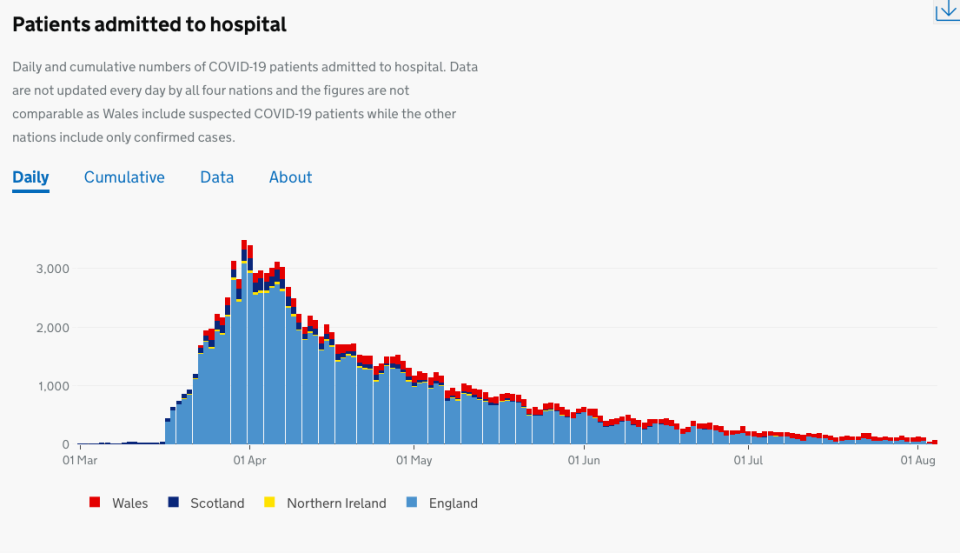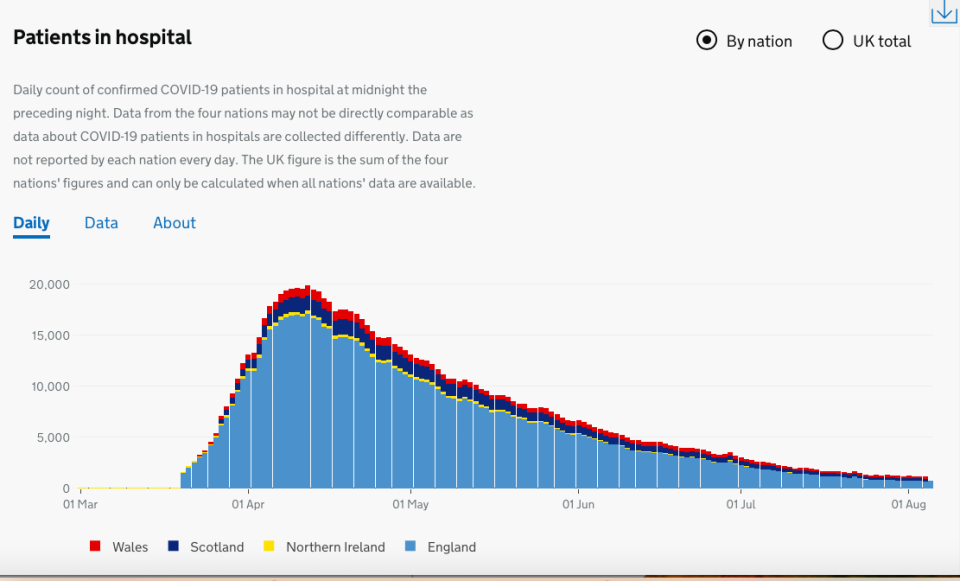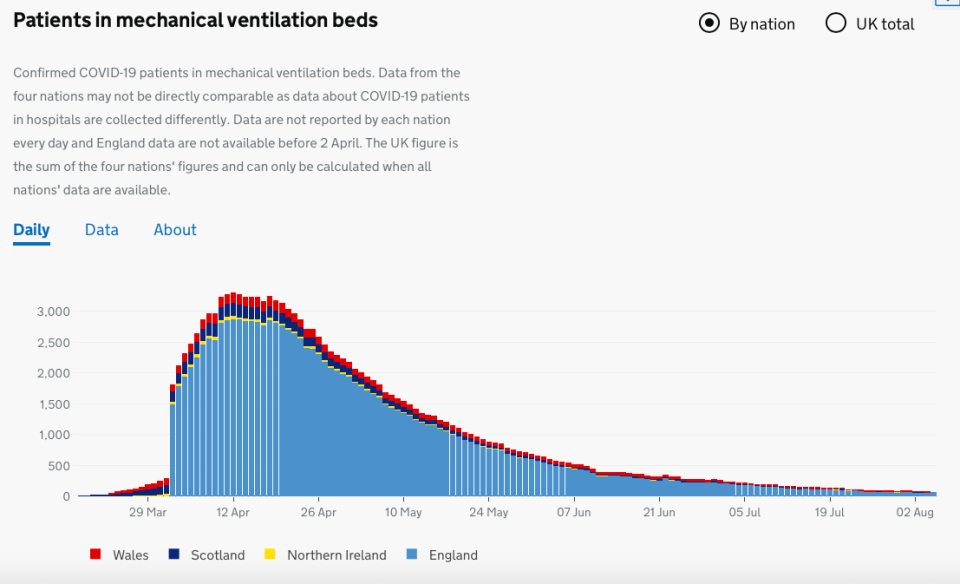UK has 'excessive focus' on coronavirus at the expense of other illnesses, says leading doctor

An ICU doctor has said that the aftermath of the coronavirus lockdown and its impact on hospitals and other illnesses is causing "just as much harm" as the virus itself.
Dr Ron Daniels, the chief executive of the UK Sepsis Trust, said his recent work in two large hospitals in Birmingham showed that there was a “huge downturn” of COVID-19 patients who were seriously ill.
Daniels, who also acts as an adviser to the Department of Health, warned that other illnesses were now being sidelined as the “excessive focus” was still on the pandemic.


He told Newsnight: “There’s the cancer issue. There are people presenting late with heart attacks and strokes.
“The unintended consequence of an excessive focus on COVID and – don’t get me wrong, during the height of this crisis this was horrible in British hospitals – but, right now, we’re dealing with the aftermath and that is causing just as much harm as the virus itself.”
The government’s own data shows a huge drop in hospital admissions following the peak of coronavirus in April.
Data from Johns Hopkins shows that the UK still has the fourth-highest COVID death toll in the world, with 46,295 dying from the disease out of 307,271 cases.
Boris Johnson last week defended the government’s record on coronavirus, saying there has been "a massive success now in reducing the numbers of those tragic deaths".
And as more areas faced local lockdowns, the Prime Minister said the current measures were necessary to prevent a "really damaging second wave".
He warned: "It's absolutely vital as a country we continue to keep our focus and our discipline and that we don't delude ourselves that somehow we're out of the woods or that this is all over because it isn't all over.
However, when asked if the UK was making “too big a deal of coronavirus”, Daniels said: “I think we’re looking at the national number of cases with a bit too much vigour.
“We need to look at it balanced against the other data we have including hospital admissions and critical care admissions and of course deaths, which, again, are very much lower than they were.”
Referencing his recent work in Birmingham, Daniels said there were less than 20 cases of people who were seriously ill, and less than 10 who were critically ill.
He said: “Compare to that to where we were a couple of months ago where we had almost 200 patients ventilated at any one given time and this is a huge downturn – and we’ve seen the same in other countries.”

Across the rest of Europe, more lockdowns have been reintroduced in Spain, while both Greece and France have seen a rise in coronavirus cases.
The top scientific body in France recently warned a second wave of the coronavirus is "highly likely", while German doctors also said the country is already dealing with a second spike of infections because people were flouting social distancing rules.
The warnings came as the World Health Organization (WHO) said the virus is surging back in most countries that previously had it under control.
But Daniels said that the NHS is filling back up with the “normal caseload” that would be seen at this time of year, adding: “We’re seeing very few admissions of people with coronavirus and that’s true whether we’re in Birmingham, we’re in Swindon, in Reading it is simply the case that although we’re testing more and identifying more cases our hospitals are not – yet – filling up with sick people.”

With northern areas in England placed into local lockdowns following an uptick in coronavirus cases, Daniels said the national number of cases were being looked at “with a bit too much vigour”, adding that deaths “are very much lower than they were”.
Daniels’ comments come as a new study found that coronavirus infection rates continued to decline even when some lockdown restrictions had been lifted.
The research, conducted by Imperial College London and Ipsos MORI, involved 150,000 volunteers across England being tested for COVID-19 between 19 June and 8 July to determine the scope of the spread of the virus throughout the country.
Coronavirus: what happened today
Click here to sign up to the latest news and information with our daily Catch-up newsletter

 Yahoo News
Yahoo News 


